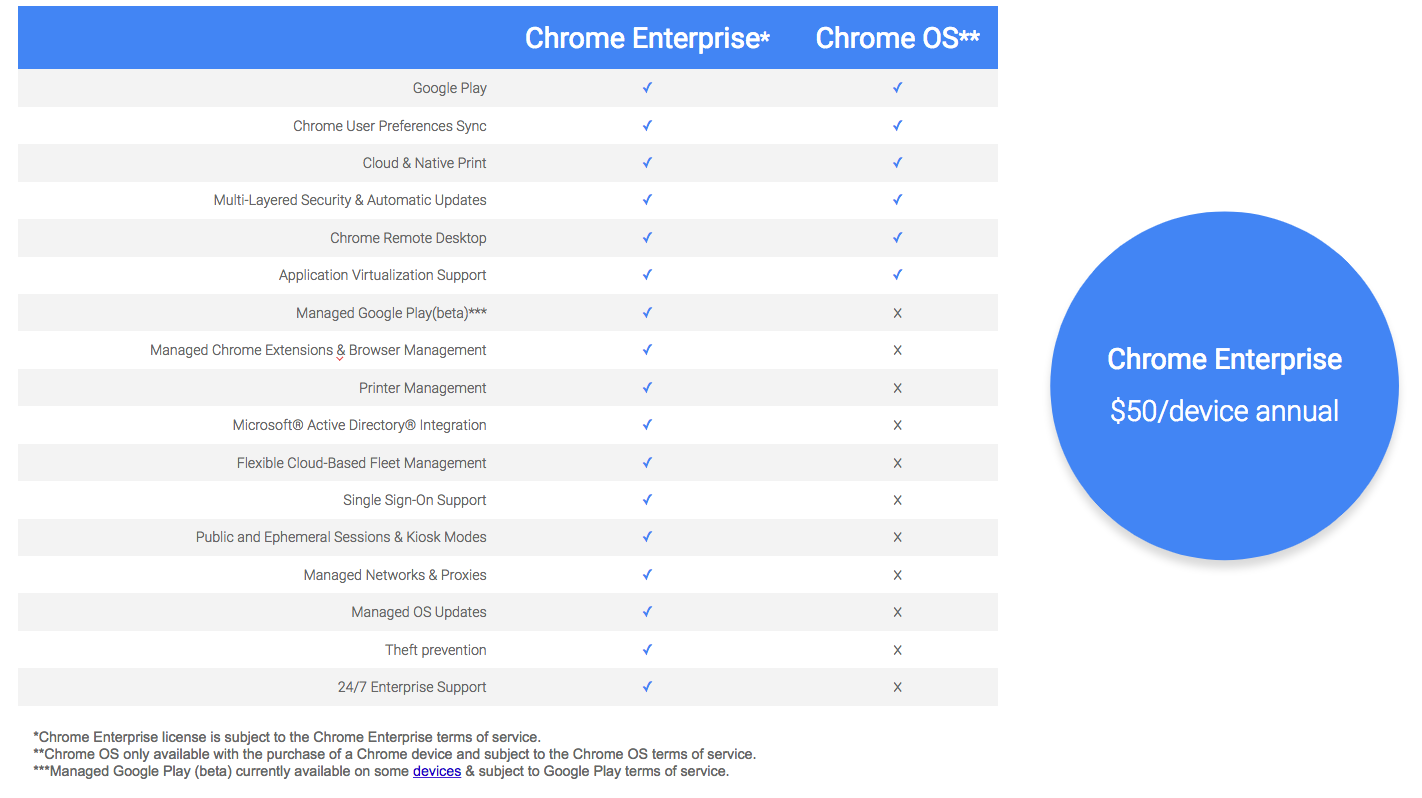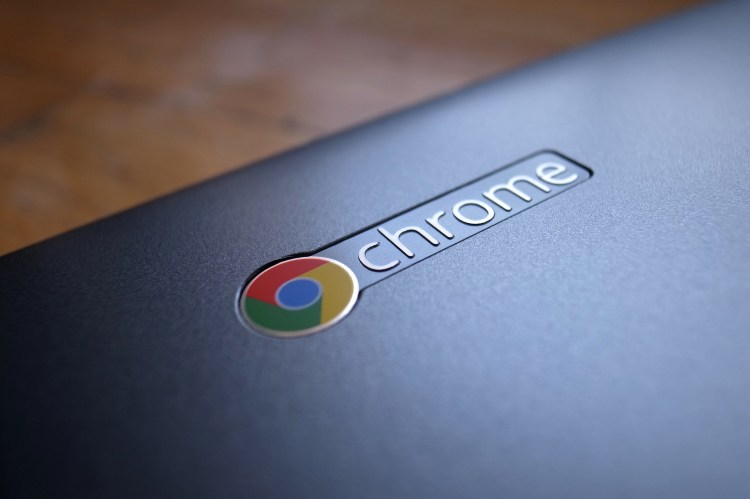testsetset
Chromebooks are headed to work this fall, thanks to a new program that Google introduced today. The new Chrome Enterprise bundle provides enterprises with a set of services that help bring Chromebooks on par with Microsoft Windows PCs.
Chrome Enterprise will give IT administrators a cloud-based management portal for handling a fleet of Chromebooks, support for virtualized desktop applications, theft prevention, and a host of other features. One of the most important features in the bundle for many enterprises will be support for authentication through Microsoft Active Directory, even when the directory server is held in an on-premises environment.
The service will cost businesses $50 per managed Chromebook per year. Google didn’t say whether it will offer large enterprises discounts on massive volume orders.
Chrome OS initially launched as a lightweight computer operating system that provided users with access to Google’s browser and web-based applications like G Suite. It has since evolved, picking up features like support for running Android apps distributed through the Play Store.
June 5th: The AI Audit in NYC
Join us next week in NYC to engage with top executive leaders, delving into strategies for auditing AI models to ensure fairness, optimal performance, and ethical compliance across diverse organizations. Secure your attendance for this exclusive invite-only event.

Above: A chart shows a comparison between features available from standard Chrome OS and Chrome Enterprise.
Google is also adding support for enterprise mobility management software into Chrome OS with this launch. While the system will eventually support many EMM providers, the company is partnering with VMware AirWatch at launch.
It’s a move by Google to make its desktop operating system more palatable to large businesses at a time when Chromebooks are increasingly popular. They’ve proven very successful in education, where the promise of a highly locked-down laptop dovetails well with the needs of educators and systems administrators.
$50 per Chromebook per year may seem like a hefty price tag, but it’s worth remembering that Enterprises typically pay Microsoft on an ongoing basis for licenses of and support for Windows. It’s hard to pin down how Chrome Enterprise compares on price to Microsoft’s operating system, since what enterprises pay for Windows is governed by volume licensing agreements. Last year, Microsoft introduced Windows 10 Enterprise E3, with a base price of $84 per license seat per year, though that can get adjusted depending on the deals companies strike. (Microsoft licenses Windows 10 on a per user basis, so one license seat can be used for multiple devices, if applicable.)
Chrome Enterprise’s launch also comes at a key time. The end of support for Windows 7 is in January 2020, and businesses were scarred by the migration away from Windows XP. That means enterprises are already evaluating what their next upgrade path is, and Chrome Enterprise could help position Google as a compelling alternative to Microsoft at a time when companies are thinking about a move.
Update 9:35 a.m. This story has been updated to clarify Windows 10’s per-user licensing model.

